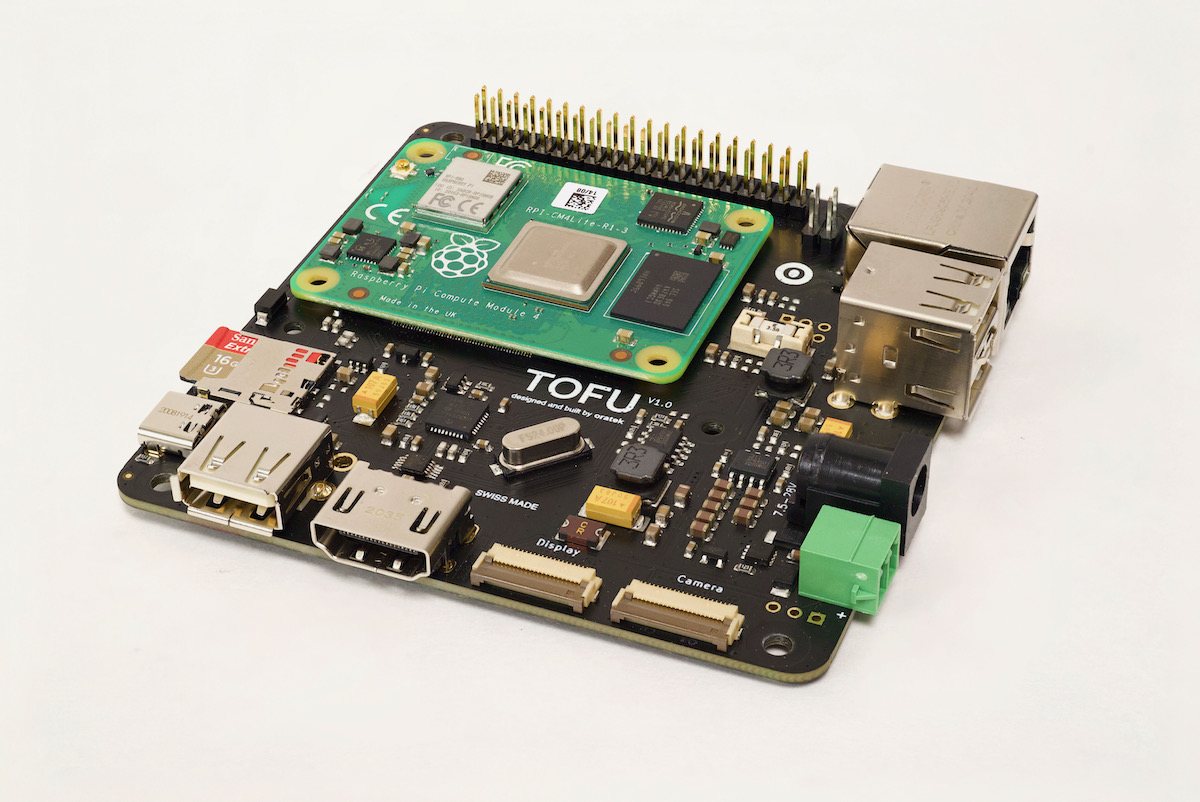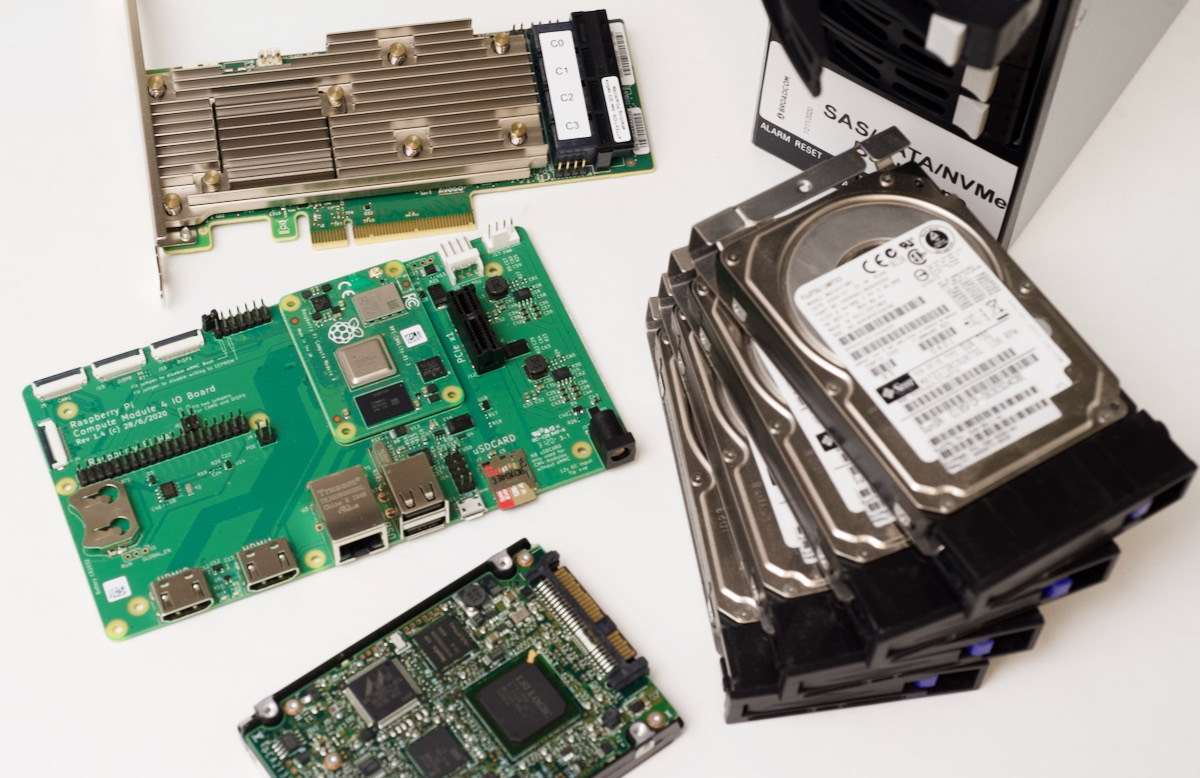M.2 on a Raspberry Pi - the TOFU Compute Module 4 Carrier Board
Ever since the Pi 2 model B went to a 4-core processor, disk IO has often been the primary bottleneck for my Pi projects.
You can use microSD cards, which aren't horrible, but... well, nevermind, they're pretty bad as a primary disk. Or you can plug in a USB 3.0 SSD and get decent speed, but you end up with a cabling mess and lose bandwidth and latency to a USB-to-SATA or USB-to-NVMe adapter.
The Pi 4 actually has an x1 PCI Express gen 2.0 lane, but the USB 3.0 controller chip populates that bus on the model B. The Compute Module 4, however doesn't presume anything—it exposes the PCIe lane directly to any card it plugs into.

And in the case of Oratek's TOFU, it's exposed through an M.2 slot, making this board the first one I've used that can accept native NVMe storage, directly under the Pi:
